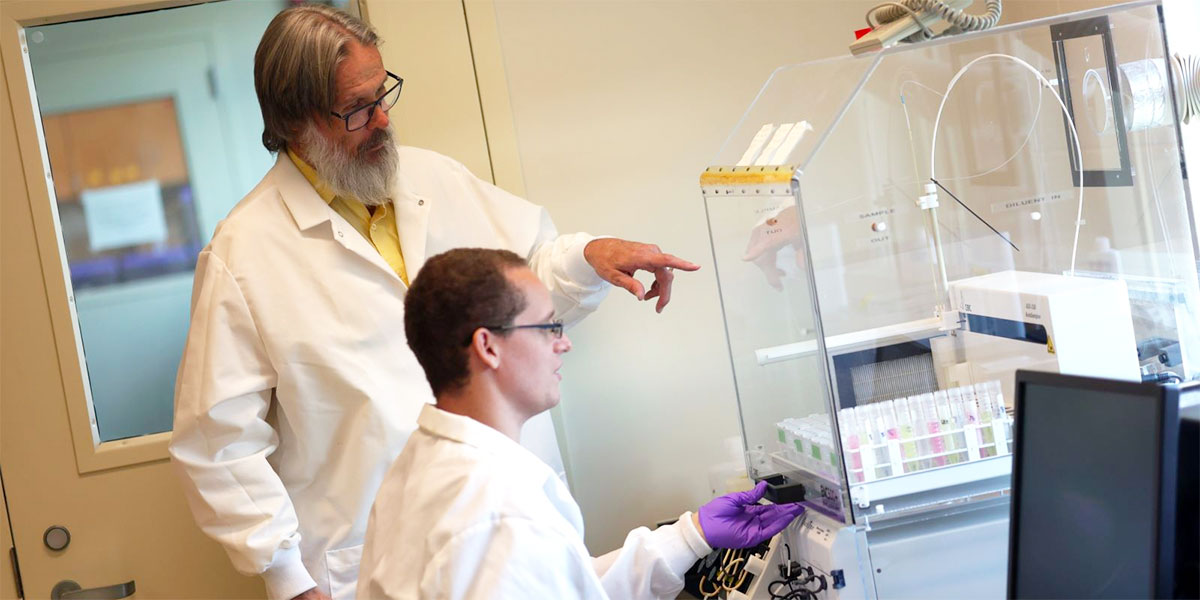That long-pursued ‘seat at the table’ for Baylor researchers? It’s happening.

As Baylor pursued and received R1 research recognition, leaders across the university noted it was about more than mere prestige; it was about having a “seat at the table,” where Baylor professors could bring a Christian research university’s viewpoints and ideas into settings where real impact can take place.
The litany of significant awards, appointments and assignments Baylor sciences faculty have received in recent months suggest that dream is coming true. The honors have come from an assortment of internationally recognized sources — organizations where conversations on the toughest questions in their disciplines take place. Elsewhere, work by Baylor faculty is challenging long-held industry standards, and making a difference through the changes that brings about.
Here are just a few examples:
— The Ernest Guenther Award in the Chemistry of Natural Products is a prestigious award, with a list of recipients that includes five Nobel Prize laureates. This year, the honor went to Baylor’s Dr. John Wood, the Robert A. Welch Distinguished Professor of Chemistry and Biochemistry. The award recognizes individuals who have made outstanding achievements in the synthesis of natural products, which describes Wood very well; chemical synthesis like that performed in his Baylor labs could eventually lead to drugs for cancer and other diseases.
— When the Environmental Protection Agency (EPA) needed a new chair for their Science Advisory Committee on Chemicals, they turned to Dr. George Cobb, chair of Baylor’s Department of Environmental Science. Composed of experts in toxicology, epidemiology and a variety of environmental science disciplines, Cobb will lead the committee as it advises the EPA on implementing the Toxic Substance Control Act and bringing policy to life to protect others.
— What is the impact of +/- 0.4%? In chemical journals, that tiny percentage has long represented the difference between possible publication or not being published at all. Dr. Caleb Martin, a Baylor associate professor of chemistry and biochemistry, is changing that. For those of us without a science background, it gets technical very quickly. The short version: a Nobel Prize-winning chemist long ago set standards for chemical purity through his research, but Martin’s research has challenged the validity of that standard and led multiple major chemistry journals to change their standards for publication, causing ripples throughout the entire industry.
And those are just the latest examples. Earlier this year, we covered a Baylor professor whose research changed Africa’s prehistoric timeline by 10 million years and a longtime environmental science leader named an American Association for the Advancement of Science Fellow. As Baylor’s research momentum continues to grow, you can expect more honors and opportunities for influence in the years ahead.
Sic ’em, Baylor researchers!

